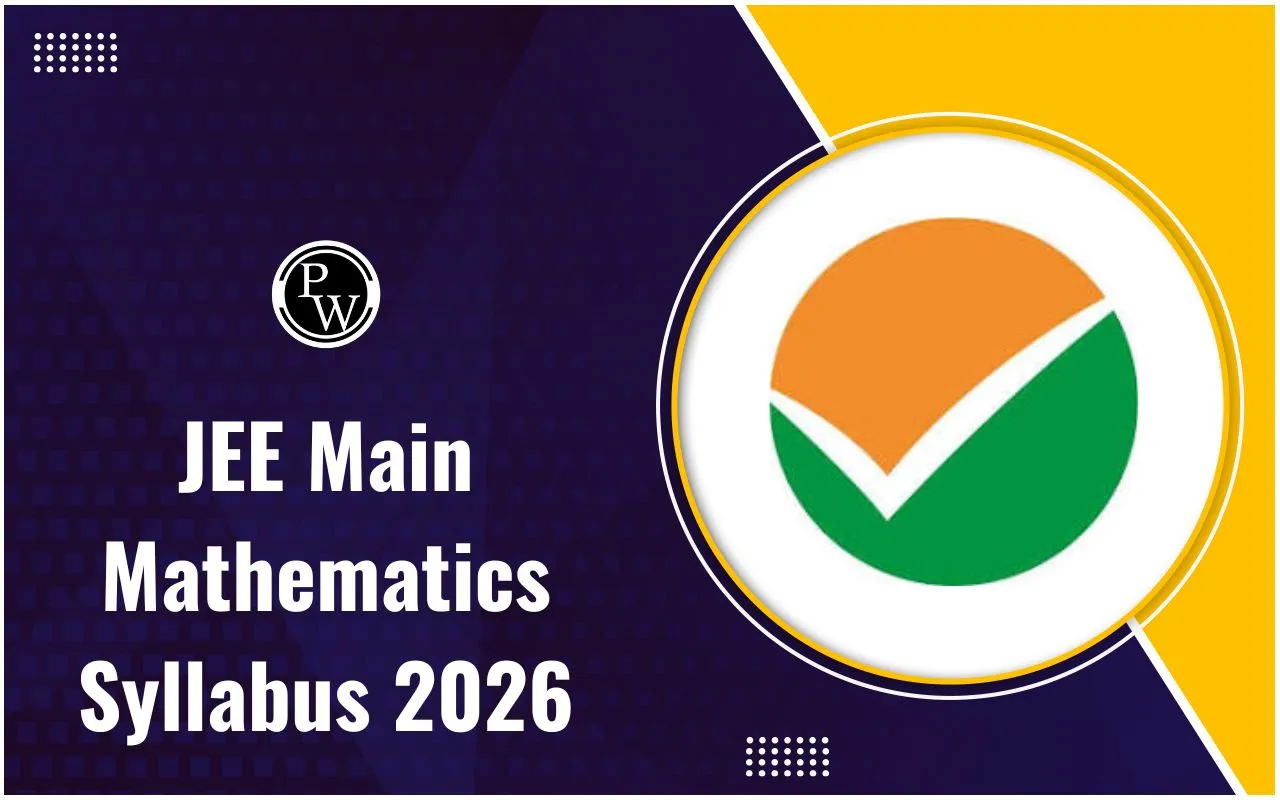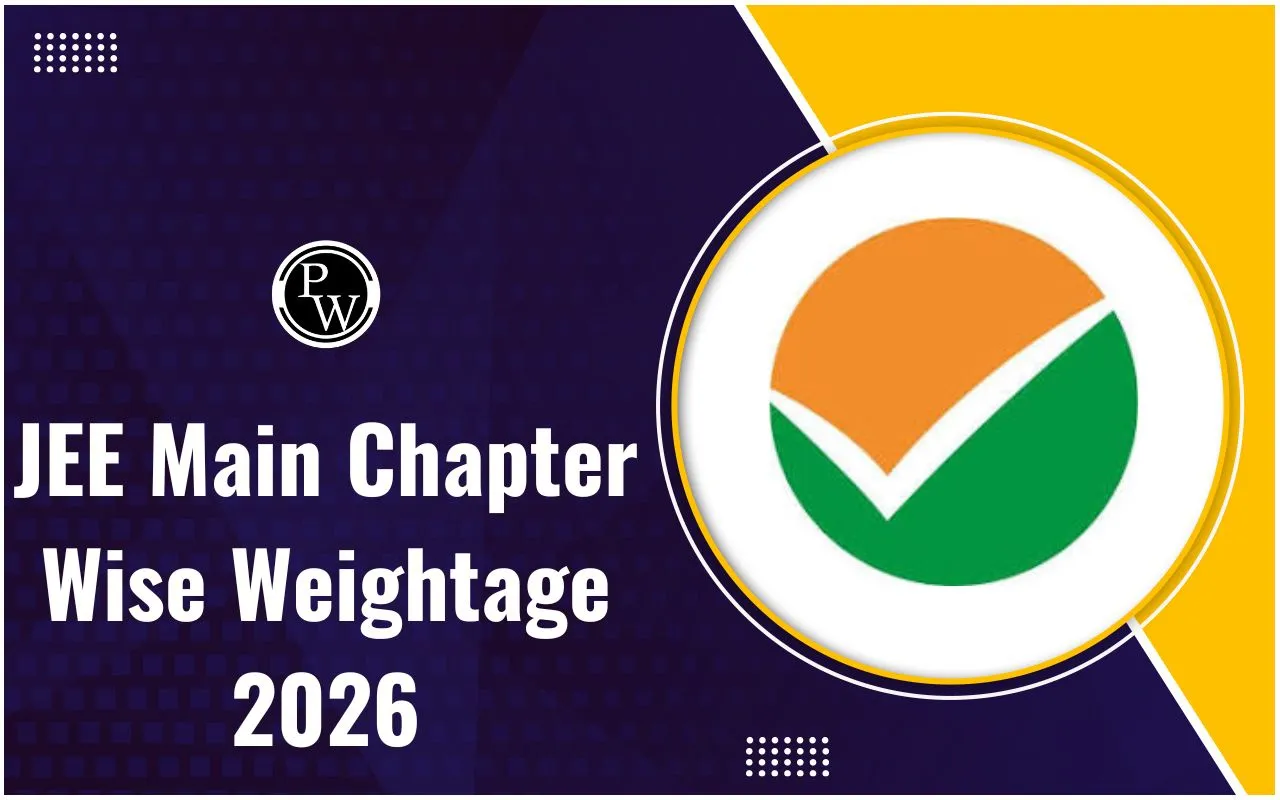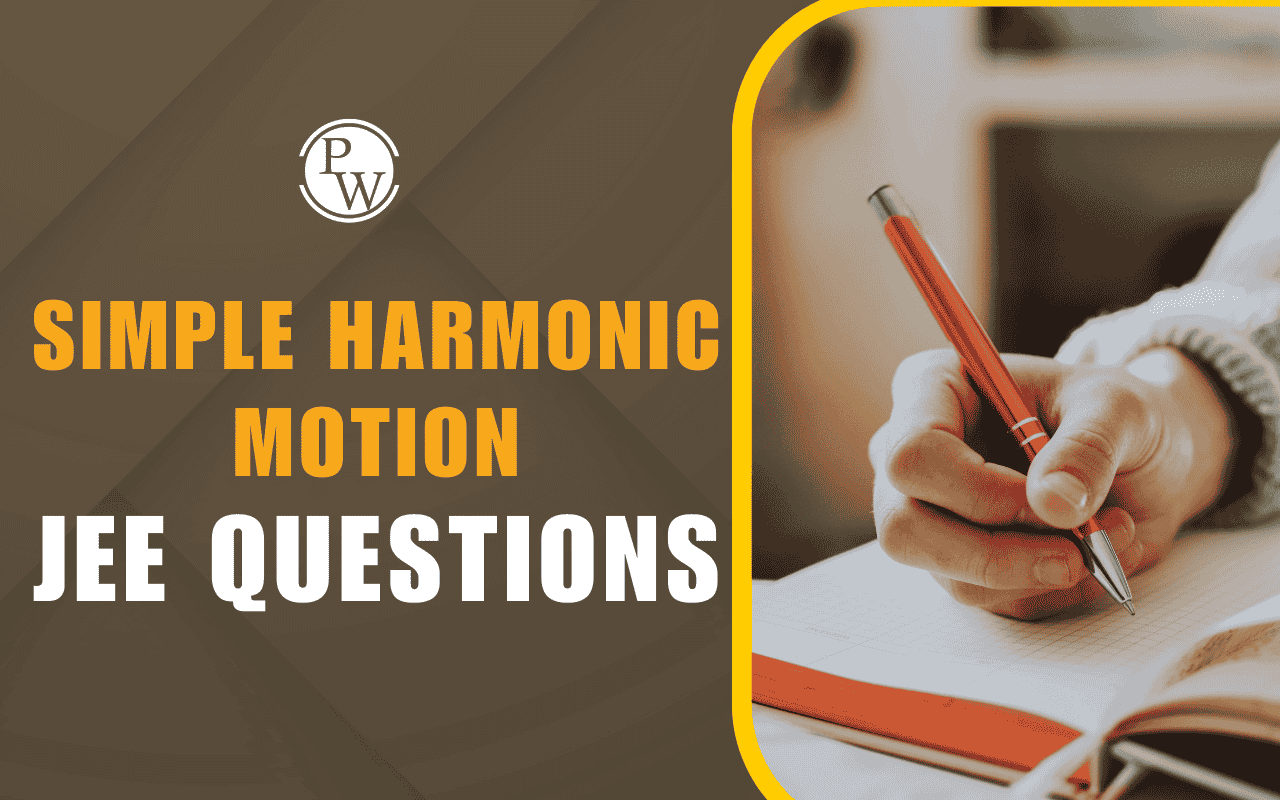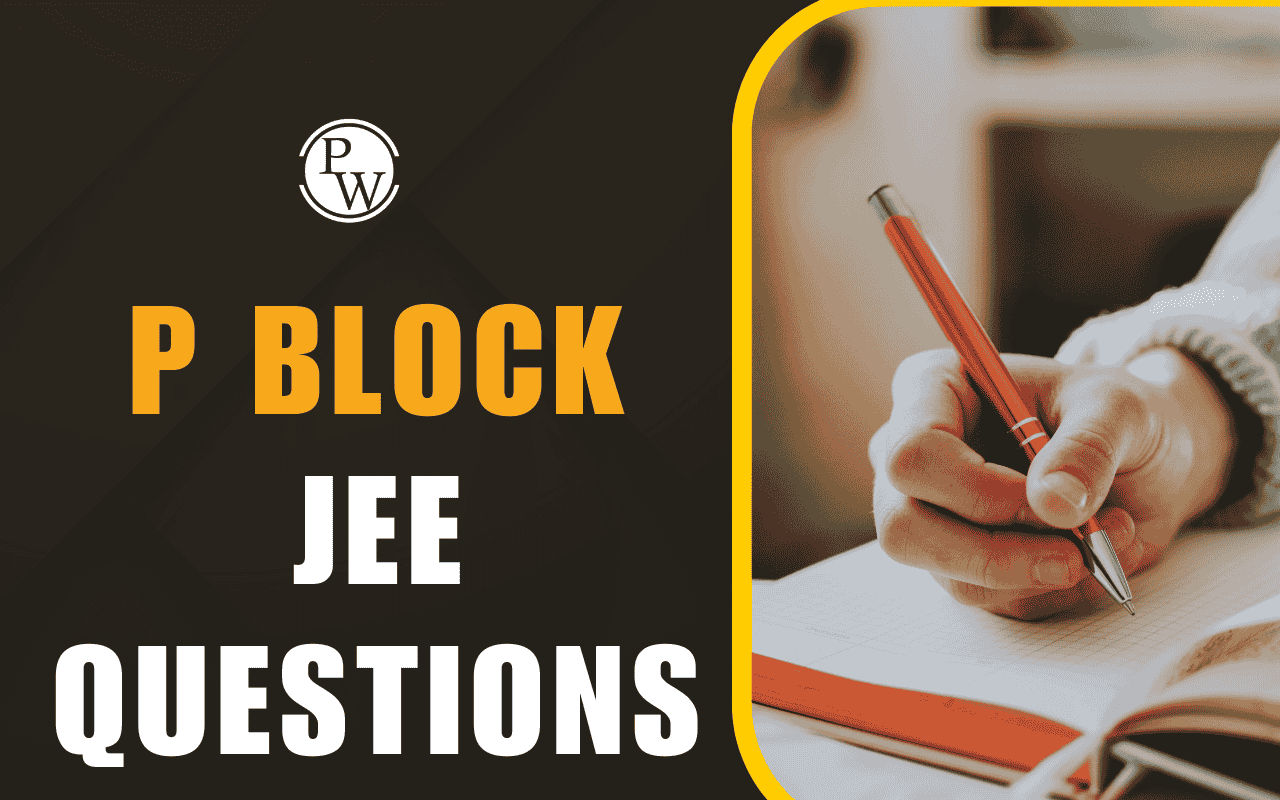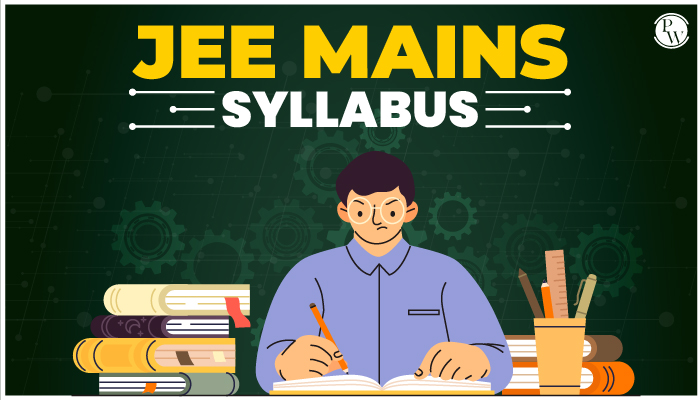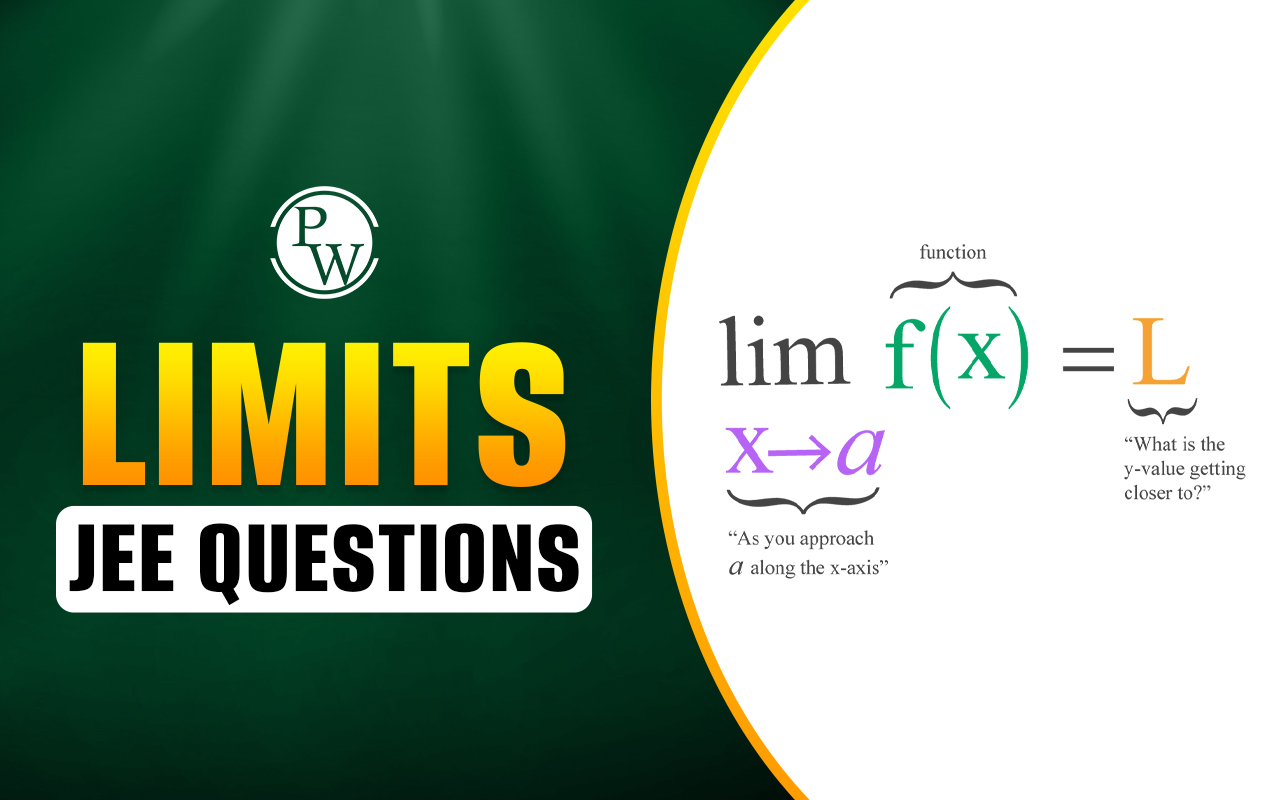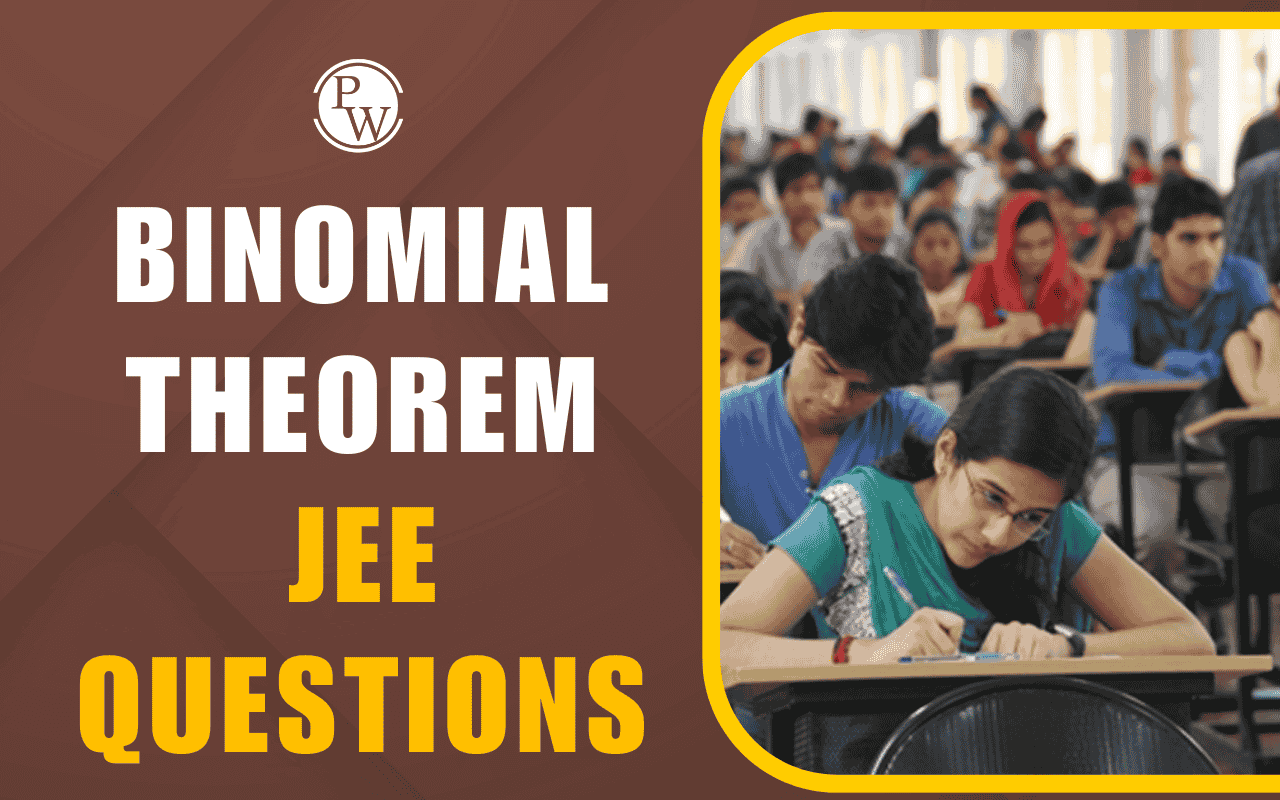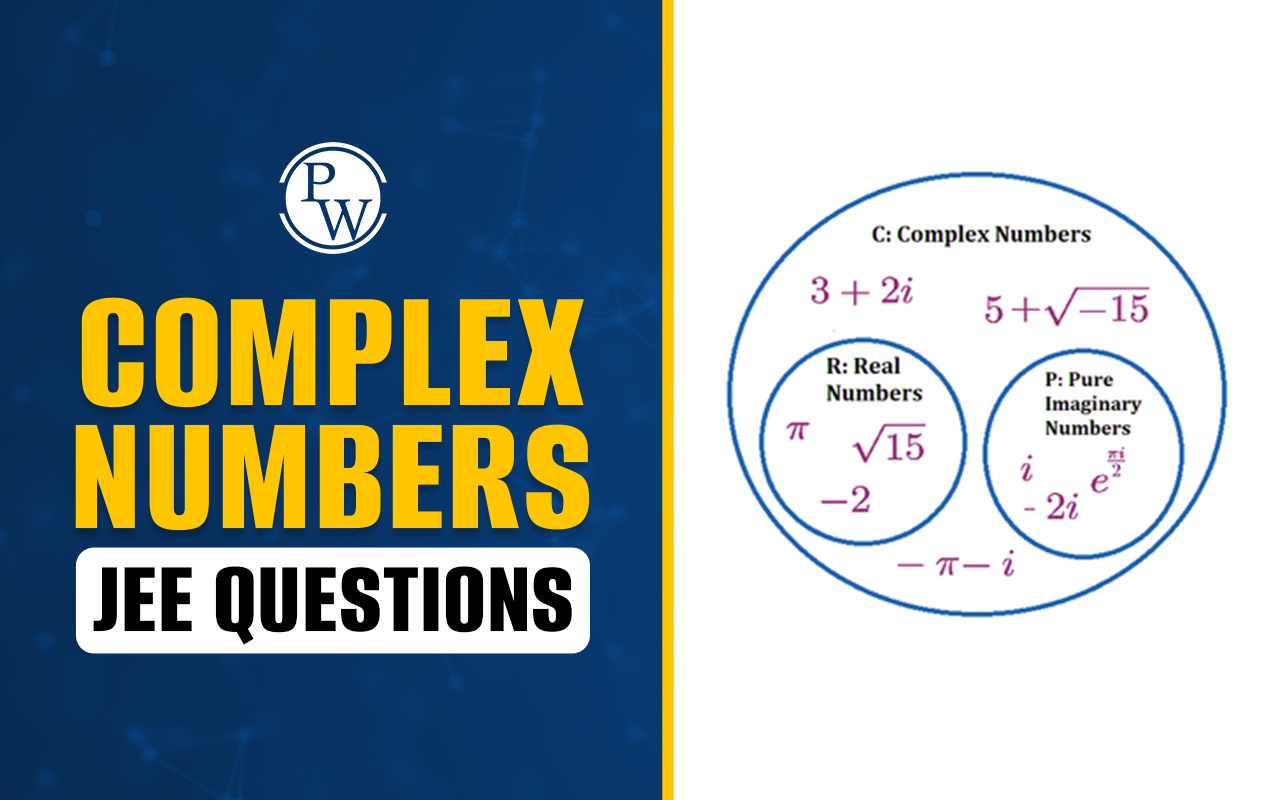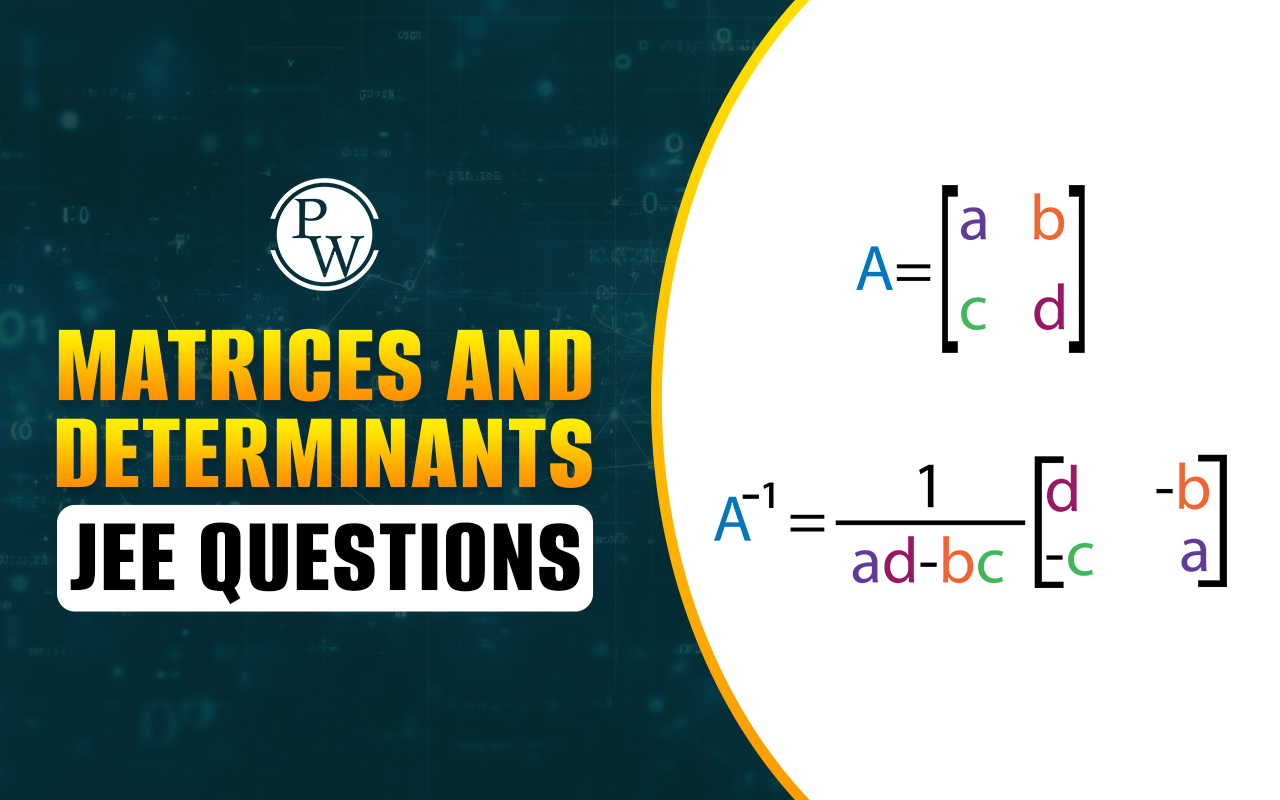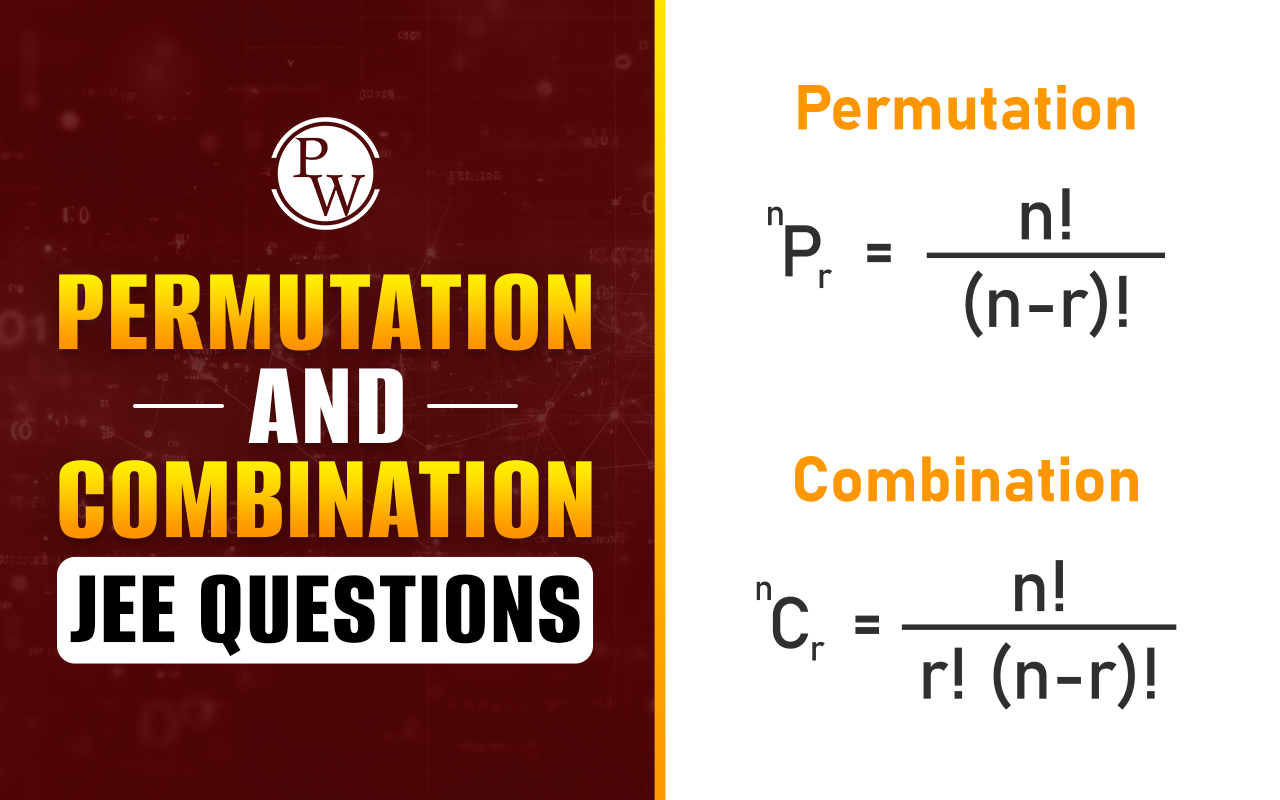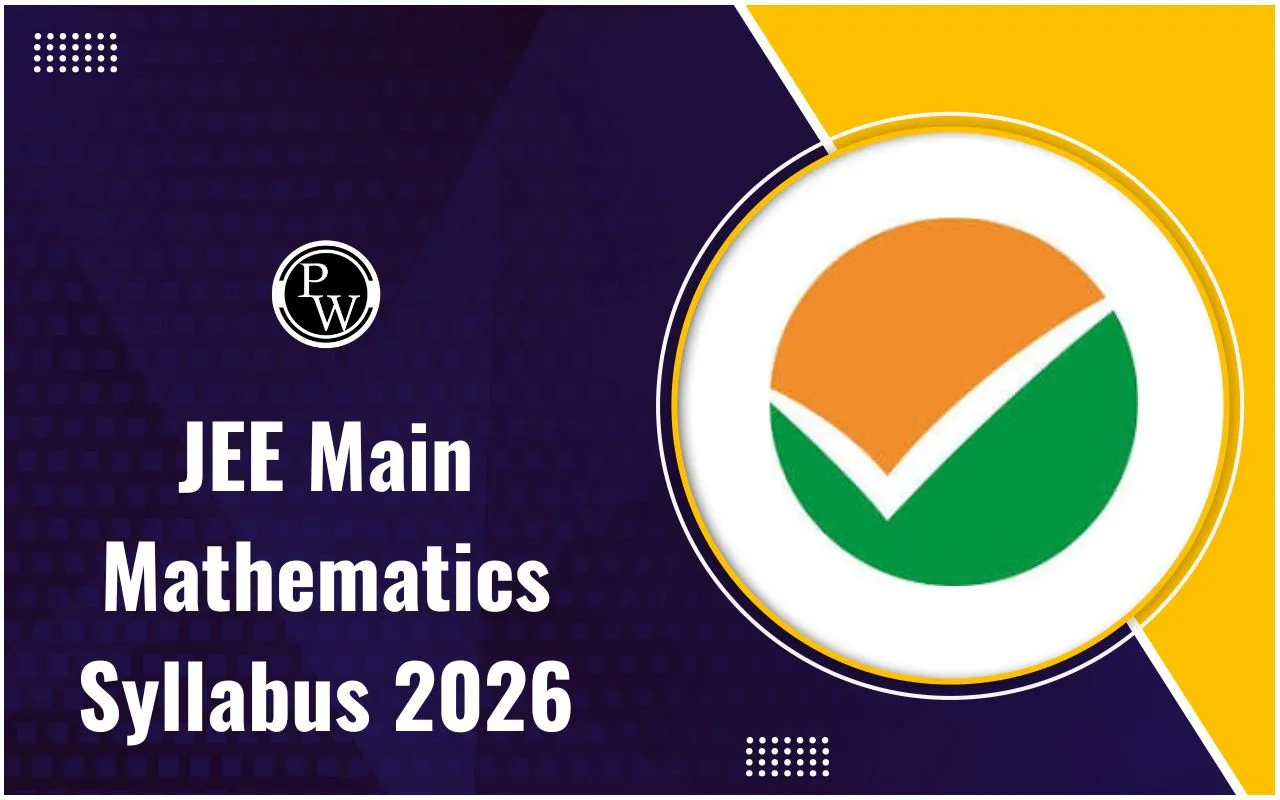
JEE Main Mathematics Syllabus 2026: National Testing Agency (NTA) will soon release the JEE Main Mathematics Syllabus 2026. Based on the 2025 syllabus, nothing much is likely to change again this year either. It should be kept in mind that two chapters—Mathematical Induction and Mathematical Reasoning—were excised from the syllabus in 2024, and they were not present in the 2025 syllabus either. These chapters are likely to stay excluded in 2026 as well. According to the past trend, the JEE Main Maths syllabus typically consists of 14 units with both Class 11 and 12 topics. Each unit has approximately 5 to 10 topics, so it is anticipated that students study each unit thoroughly to have good exam preparation.
JEE Main Mathematics Syllabus 2026 Overview
JEE Main Mathematics syllabus 2026 has not yet been declared by NTA but the same shall be released shortly. Until the time, nonetheless, the 2026 year syllabus for Mathematics is made public, the students can keep last year's JEE Main syllabus for Mathematics in mind. The 2025 syllabus consists of 16 units and these consist of prominent topics of the standard Class 11 and 12 curriculum.
JEE Main Mathematics Syllabus PDF Download
Interested candidates can click on the below link to download the JEE Main Mathematics Syllabus PDF
JEE Main Mathematics Syllabus PDF Download
JEE Main Mathematics Syllabus 2026
The following table is the in-depth JEE Main Mathematics syllabus covered on the examination.
|
JEE Main Mathematics Syllabus 2026 |
|
|
Units |
Topics |
|
SETS, RELATIONS AND FUNCTIONS |
Sets and their representation; Union, intersection and complement of sets and their algebraic properties; Power set; Relations, type of relations, equivalence relations, functions; one-one, into and onto functions, the composition of functions. |
|
COMPLEX NUMBERS AND QUADRATIC EQUATIONS |
Complex numbers as ordered pairs of reals, Representation of complex numbers in the forma +iband their representation in a plane, Argand diagram, algebra of complex numbers, modulus and argument (or amplitude) of a complex number, Quadratic equations in real and complex number systems and their solutions; Relations between roots and coefficients, nature of roots, the formation of quadratic equations with given roots. |
|
MATRICES AND DETERMINANTS |
Matrices, algebra of matrices, type of matrices, determinants and matrices of order two and three, evaluation of determinants, area of triangles using determinants; Adjoint and inverse of a square matrix; Test of consistency and solution of simultaneous linear equations in two or three variables using matrices |
|
PERMUTATIONS AND COMBINATIONS |
The fundamental principle of counting, permutations and combinations; Meaning of P(n, r) and C(n, r). Simple applications. |
|
BINOMIAL THEOREM AND ITS SIMPLE APPLICATIONS |
Binomial theorem for a positive integral index, general term and middle term and simple applications. |
|
SEQUENCE AND SERIES |
Arithmetic and Geometric progressions, insertion of arithmetic, geometric means between two given numbers, Relation between A.M and G.M |
|
LIMIT, CONTINUITY AND DIFFERENTIABILITY |
Real–valued functions, algebra of functions; polynomial, rational, trigonometric, logarithmic and exponential functions; inverse functions. Graphs of simple functions. Limits, continuityanddifferentiability. Differentiation of the sum, difference, product and quotient of two functions. Differentiation of trigonometric, inverse trigonometric, logarithmic, exponential, composite and implicit functions; derivatives of order upto two, Applications of derivatives: Rate of change of quantities, monotonic-Increasing and decreasing functions, Maxima and minima of functions of one variable. |
|
INTEGRAL CALCULAS |
Integral as an anti-derivative, Fundamental integrals involving algebraic, trigonometric, exponential and logarithmic functions. Integration by substitution, by parts and by partial fractions. Integration using trigonometric identities. Evaluation of simple integrals of the type ∫ dx / (x² + a²), ∫ dx / (x² ± a²), ∫ dx / (a² − x²), ∫ dx / √(a² − x²), ∫ dx / (ax² + bx + c), ∫ dx / √(ax² + bx + c), ∫ (px + q) dx / (ax² + bx + c), ∫ (px + q) dx / √(ax² + bx + c), ∫ √(a² ± x²) dx, ∫ √(x² − a²) dx The fundamental theorem of calculus, properties of definite integrals. Evaluation of definite integrals, determining areas of the regions bounded by simple curves in standard forms. |
|
DIFFRENTIAL EQUATIONS |
Ordinary differential equations, their order and degree, the solution of differential equation by the method of separation of variables, solution of a homogeneous and linear differential equation of the type dy/dx + p(x)·y = q(x) |
|
CO-ORDINATE GEOMETRY |
Cartesian system of rectangular coordinates in a plane, distance formula, sections formula, locus and situation, the slope of a line, parallel and perpendicular lines, intercepts of a line on the co-ordinate axis. Straight line: Various forms of equations of a line, intersection of lines, angles between two lines, conditions for concurrence of three lines, the distance of a point form a line, co-ordinate of the centroid, orthocentre and circumcentre of a triangle. Circle, conic sections: A standard form of equations of a circle, the general form of the equation of a circle, its radius and centre, equation of a circle when the endpoints of a diameter are given, points of intersection of a line and a circle with the centre at the origin and sections of conics, equations of conic sections(parabola, ellipse and hyperbola) in standard forms. |
|
THREE DIMENSIONAL GEOMETRY |
Coordinates of a point in space, the distance between two points, section formula, direction ratios and direction cosines and the angle between two intersecting lines. Equation of a line; Skewlines, the shortest distance between them and its equation. |
|
VECTOR ALGEBRA |
Vectors and scalars, the addition of vectors, components of a vector in two dimensions and three-dimensional spaces, scalar and vector products. |
|
STATISTICS AND PROBABILITY |
Measures of dispersion; calculation of mean, median, mode of grouped and ungrouped data, calculationofstandard deviation, variance and mean deviation for grouped and ungrouped data. Probability: Probability of an event, addition and multiplication theorems of probability, Baye's theorem, probability distribution of a random variable. |
|
TRIGONOMETRY |
Trigonometrical identities and trigonometrical functions, inverse trigonometrical functions and their properties. |
JEE Main 2026 Chapter-wise Weightage Maths
Following is Chapter-wise weightage for JEE Main 2026 Mathematics from the previous year question paper analysis. It gives the number of questions and weightage from each chapter, giving the students immense insight into what to study. It is a must-know for healthy and intelligent exam preparation.
Subdiscipline-wise Weightage for Maths
Following is a sub-discipline-wise comparison of 2024 and 2025 JEE 2024 with Mathematics question-wise distribution to decide your strategy for JEE 2026 preparation. Students can give more importance to Algebra and Calculus, as both have always dominated the largest share. Don't neglect Geometry and Trigonometry, as both give a good boost to your score.
|
Subdiscipline Chapters |
JEE 2024 (%) |
JEE 2025 (%) |
|
Calculus |
37.3% |
30.7% |
|
Algebra |
33.5% |
39.4% |
|
3D Geometry |
13.3% |
12.0% |
|
2D Geometry |
12.3% |
15.4% |
|
Trigonometry |
3.5% |
2.5% |
JEE Chapter-wise Weightage Comparison For Maths
The following are January and April session-specific chapter bifurcations of questions to allow you to focus on high-weightage chapters for JEE Main 2026. Practice the best chapters that constitute over 50% of the paper, like 3D Geometry, Matrices, Differential Equations, and Binomial Theorem. Practice in these topics can assist you in harnessing your maximum score potential.
|
Chapter Name |
Question No JEE Main 2025 January session |
Question No JEE Main 2025 April session |
|
Three-Dimensional Geometry |
18 |
17 |
|
Matrices and Determinants |
18 |
15 |
|
Differential Equations |
15 |
9 |
|
Vector Algebra |
12 |
10 |
|
Definite Integration |
11 |
9 |
|
Sequence and Series |
13 |
13 |
|
Straight Lines |
11 |
9 |
|
Binomial Theorem |
11 |
13 |
|
Set Theory and Relations |
11 |
9 |
|
Application of Derivatives |
4 |
9 |
|
Functions |
10 |
11 |
|
Probability |
12 |
9 |
|
Limits of Functions |
10 |
9 |
|
Permutations and Combinations |
12 |
9 |
|
Circle |
5 |
4 |
|
Differentiability & Method of Diff. |
2 |
2 |
|
Quadratic Equations |
8 |
8 |
|
Complex Numbers |
8 |
8 |
|
Statistics |
4 |
5 |
|
Hyperbola |
5 |
7 |
|
Continuity |
2 |
2 |
|
Trigonometric Equations |
2 |
5 |
|
Parabola |
10 |
6 |
|
Indefinite Integration |
5 |
3 |
|
Inverse Trigonometric Functions |
7 |
4 |
|
Ellipse |
7 |
9 |
|
Trigonometric Ratios and Identities |
3 |
2 |
|
Solutions of Triangles |
0 |
0 |
|
Basic Mathematics and Logarithms |
1 |
0 |
JEE Main Class-wise Question Distribution for Maths
Understanding the distribution of questions between Class XI and Class XII topics helps students plan their studies more effectively. Below is the class-wise breakdown of questions from the JEE Main papers for the years 2024 and 2025.
|
Year |
Session |
Class XI Questions |
Class XII Questions |
|
2024 |
April |
115 |
185 |
|
January |
119 |
181 |
|
|
2025 |
April |
110 |
115 |
|
January |
116 |
134 |
JEE Main Mathematics Preparation Tips 2026
So, preparing for Mathematics in JEE Main is a trolley ride, but with a proper plan and attitude, students can score very well. There is one key, which means in the right direction approach, keeping the basics of all subjects like algebra, calculus, and trigonometry, so high.
- Start with strengthening the basics: Most of the mathematics has its roots in the concepts, so you should first be good at the basics like Algebra, Calculus, and Trigonometry. Moreover, a strong foundation not only aids in solving basic-level problems but also think afterward and implement what you have seen at higher-level questions in the exam.
- Pay attention to high-weightage and scoring topics: Some chapters are Weighted more to ask again and have higher marks in examination. The following should be given more preference: Algebra, particularly Quadratic Equations and Polynomials, Calculus (Differential Calculus & Integral Calculus), Coordinate Geometry, and Trigonometry. Once you are good at these topics, it can give a boost to your score.
- Practice regularly to improve speed and accuracy: Mathematics is much better done the more you practice. Students have to start solving the problems, from the easiest and simplest ones to the hardest problems. For practising, you can use NCERT books and jee main previous year question papers, references, etc. It is always better to understand how an equation is derived and where it is used.
- Work on time management with the help of mock tests: JEE Main is a time-based test, so practice solving questions quickly in a limited time, which will definitely help you. Solving Regular test attempts helps in time management, and helps determine which type of questions take more/less time.
- Revise regularly to retain key concepts: At the time of preparation, take very brief and effective notes of essential formulas, theorems, etc. Hence revising the notes on a regular basis will help you recollect information during the day of the exam as well as hold all the details in your memory.
- Lastly, stay positive and consistent: Preparation is not just intelligence but also regularity in doing it and keeping the target of success in JEE Main. Develop a routine of study daily, don't lose hope, and remain motivated. Regularity is the actual key to the exam, and practice and determination.
Study Materials for JEE Main 2026 Mathematics Syllabus
Candidates can refer to the JEE Main 2026 Mathematics study materials listed below, which have been specially curated by the faculty team at Physics Wallah to support effective exam preparation.
|
Study Materials for JEE Main 2026 Mathematics Syllabus |
|
46 Years Mathematics Chapterwise and Topicwise Solved Papers PYQs |
JEE Main Mathematics Syllabus 2026 FAQs
Where can I download the official JEE Main 2026 Mathematics syllabus?
What is the total weightage of the Mathematics section in JEE Main?
Is it possible to download the JEE Main 2026 Mathematics syllabus free of cost?
Has the JEE Main Mathematics syllabus changed from 2025 to 2026?
How are the topics from Class 11 and Class 12 divided in the JEE Main Mathematics exam?

